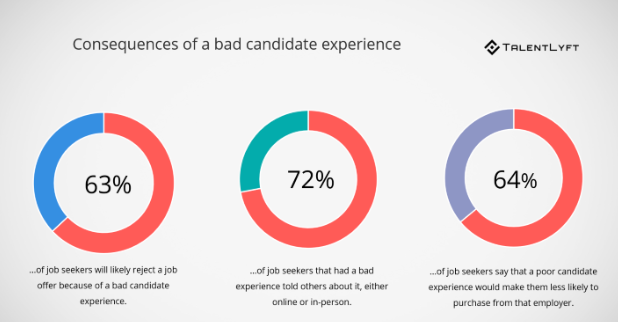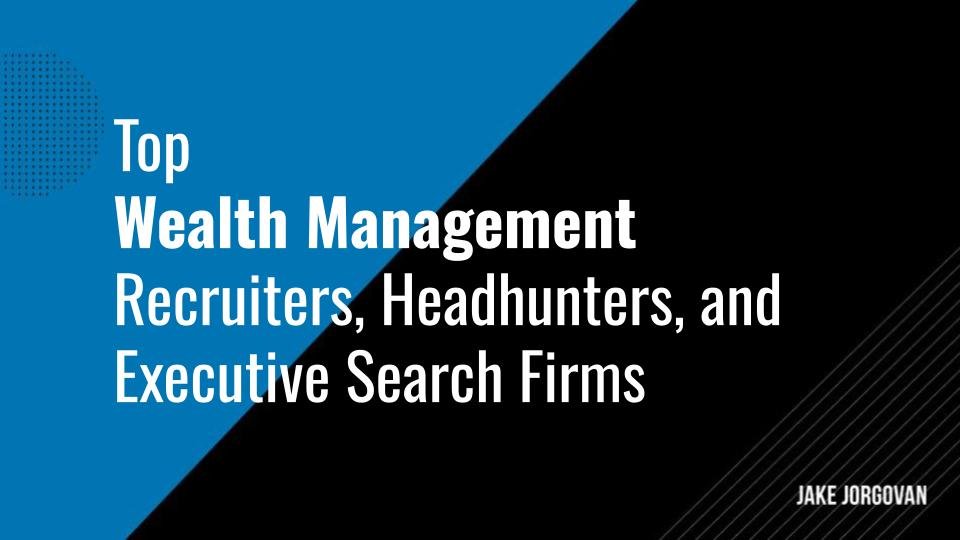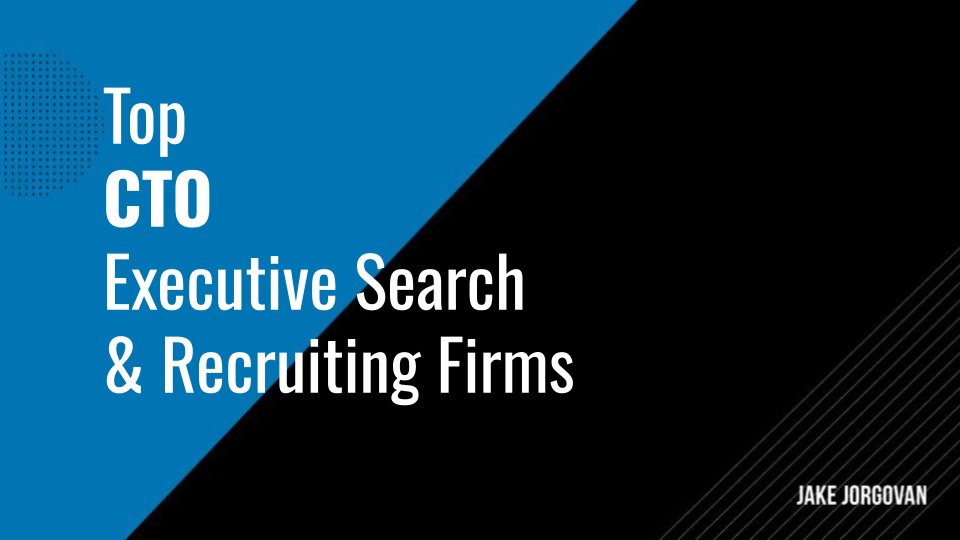AI Executive Search: Transforming Leadership Hiring
The executive search industry is changing fast, thanks to AI. Gone are the days when finding top execs was all about who you know and gut feelings.
Now, AI is stepping in with its data crunching and algorithms, making the hunt for leadership talent quicker, smarter, and fairer.
In this article, we'll explore how AI is shaking things up.
We'll show you how AI tools are streamlining the search process, cutting through biases, and upping the game in finding the right leaders.
Why Use AI in Executive Search
Finding the right leader for a company is a big deal. It’s not just about picking someone with the right title; it’s about finding a person who fits the company’s goals and culture. That’s where AI, or artificial intelligence, comes in to help. According to Aptitude Research, 42% of recruiters believe that AI will help them become more strategic in their jobs.
AI can sort through tons of information super quickly. It looks at resumes, online profiles, and other data to find the best matches for a job. This saves time and makes sure no good candidate is missed.
But efficiency is just one major plus of AI, identified by 44% of companies. The current research underlines other advantages, like better recruiting experiences.
Speaking of that, AI also helps remove bias. Instead of focusing on someone’s age, gender, or background, it focuses on their skills and experience. This makes the process fairer and helps companies find the most qualified people.
The Future of Executive Search TL;DR: How AI is Transforming the Industry
This section explores several key ways AI changes the executive search industry, including some real-world examples.
But first, the TL;DR:
Data-driven candidate sourcing: AI algorithms analyze vast datasets to identify potential candidates far beyond the reach of traditional networking methods
Enhanced matching accuracy: AI improves the accuracy of matching candidates with job requirements and company culture
Bias reduction: AI tools help mitigate unconscious biases in recruitment, promoting diversity and inclusivity in leadership positions
Predictive analytics: AI uses historical data to predict a candidate's future performance and potential for success in specific roles
Efficiency in screening: Automating initial screening processes, AI saves time by quickly shortlisting the most suitable candidates
Real-time market insights: AI provides up-to-date industry trends and talent pool analysis, helping firms stay ahead in a competitive market
Personalized candidate engagement: AI-driven communication tools enable personalized, consistent engagement with candidates throughout the search process
Now, let’s explain all these points.
1) Data-Driven Candidate Sourcing
Your success in the executive search industry hinges on identifying and attracting the best leadership talent. That's where data-driven candidate sourcing, powered by AI, comes in.
Take a look at the benefits of this approach, ranging from efficiency to diversity, objectivity, and cost-effectiveness.
Unlike traditional methods that rely on limited networks and subjective assessments, AI-driven sourcing taps into a broader, deeper talent pool by analyzing extensive datasets. This approach not only expands your reach but also uncovers hidden gems – high-caliber professionals who might not be actively seeking new roles or are outside your usual networks.
For you, as an executive search professional, this means moving beyond the confines of LinkedIn profiles and conventional databases.
AI algorithms can scour digital footprints across various platforms – industry forums, publications, and even social media. This provides a more holistic view of potential candidates, factoring in their professional achievements, thought leadership, and industry contributions, which may not be captured in traditional resumes or profiles.
Real-Life Example
You're searching for a CTO for a fintech startup. An AI system could analyze factors like candidates' contributions to open-source projects, their activity in niche fintech forums, or even their engagement with emerging technology trends on professional networks. This approach might reveal a candidate who hasn’t held a CTO title but demonstrates a strong alignment with the startup's technological and cultural needs.
The logistics company Kuehne+Nagel used AI technology to improve their internal recruiting strategy, connecting their own employees with opportunities to gain new skills and helping recruiters find talent within their own organization. This resulted in a 22% increase in conversion rates for internal candidates and a 74% employee satisfaction rate.
Remember: By integrating AI into your sourcing strategy, you ensure a more comprehensive search, yielding candidates who are not just qualified but are the right fit for the unique challenges and opportunities of the executive role you're looking to fill. This method provides you with a competitive edge, ensuring you're not just filling a position but shaping the future leadership landscape of the organizations you work with.
2) Improved Matching Accuracy
Enhanced matching accuracy through AI is a powerful tool in executive search, as it directly influences your placements’ quality and longevity. Traditional matching often relies on surface-level criteria and intuitive judgments, which can miss deeper, nuanced alignments between a candidate and a role.
AI transforms this approach by harnessing machine learning algorithms to analyze multiple factors, including career trajectory, skill compatibility, leadership style, and cultural fit. A study by ExactBuyer found that AI job matching had an accuracy rate of 85%, while traditional methods were just 60%.
“Our study found that AI job matching had a higher accuracy rate of 85% compared to traditional methods which had an accuracy rate of 60%. The AI job matching platform was able to analyze job descriptions and match the most suitable candidates based on their skills, experience, and qualifications. Traditional methods, on the other hand, relied heavily on manual screening and keyword searches which often resulted in irrelevant or unqualified candidates being shortlisted.” (ExactBuyer Study)
This increased accuracy means you can offer your clients a more sophisticated and data-backed matchmaking service.
AI tools can process and interpret complex data sets, including a candidate's professional history, their contributions in previous roles, and subtle indicators of their leadership style. This leads to a more holistic understanding of the candidate and the role.
Real-Life Example
Imagine you're seeking a CEO for a company undergoing digital transformation. Traditional methods might prioritize candidates with CEO experience.
However, AI can identify individuals with a proven track record in leading digital innovation, perhaps in a different but relevant role or industry. It can evaluate their leadership in transformative projects, even if they haven't held a CEO title, ensuring a match that aligns with the specific strategic needs of the company.
Remember: This accuracy enhances the immediate success rate of placements and ensures long-term value, as candidates are matched with roles where they can truly excel and drive growth.
3) Bias Reduction
Bias reduction through AI is crucial in executive search, as it ensures the talent pool you curate is diverse and inclusive, directly impacting your clients' organizational success. Traditional search methods, even when well-intentioned, can inadvertently perpetuate biases – whether it's favoring candidates from certain schools, industries, or demographic profiles.
The data below shows the general skepticism of companies having unbiased hiring processes:
AI, on the other hand, when properly programmed, sidesteps these unconscious biases by focusing purely on skills, experiences, and other relevant objective criteria.
Reducing bias is not just about meeting diversity quotas; it's about bringing a range of perspectives and experiences to leadership teams.
And that is key to driving innovation and competitiveness in today's global market.
AI tools can analyze a vast array of candidates' professional qualifications and accomplishments, ignoring factors like age, gender, race, or educational background unless they are specifically relevant to the job.
Real-Life Example
Consider this scenario. You're tasked with finding a new CFO for a multinational corporation. Traditionally, your search might gravitate toward candidates from top-tier finance backgrounds.
However, AI can help you identify candidates who have achieved significant financial successes in other industries or less traditional roles but possess transferable skills and diverse perspectives that could be invaluable in the CFO role.
When you use AI for bias reduction, you're not just filling a leadership position; you're helping shape more resilient, innovative companies that reflect the diverse markets they serve.
Side note: Technology giant IBM also used AI to improve their overall recruitment processes, focusing on reducing bias and ensuring talented candidates weren’t overlooked. This resulted in a more diverse workforce and a fairer hiring process. Here’s what that looks like:
4) Predictive Analytics
Predictive analytics in AI is transforming executive search because it can predict their future success in a specific role. It can also help you identify the metrics below:
Likely time to fill
Interview acceptance probability
Offer acceptance probability
Tenure estimation
Candidate future performance
This is crucial because traditional methods primarily focus on historical data, which may not always indicate future outcomes, especially in rapidly evolving industries.
In the executive search sector, predictive analytics means you can offer clients a more sophisticated assessment of how well a candidate is likely to perform in a specific role and environment.
AI algorithms can analyze patterns and outcomes from vast datasets, including career progression, leadership styles, industry transitions, and even how candidates have responded to challenges in the past.
Real-Life Example: Predicting and Preventing Turnover at HP
The Hewlett-Packard (HP) case study is very interesting. With over 300,000 employees, HP has been a leader in HR predictive analytics. Faced with employee turnover rates of up to 20% in some sales divisions—where employees stayed an average of 4-5 years—HP incurred significant recruitment costs and productivity losses. The cost of replacing mid-level employees, estimated at 150% of their annual salary, could cost HP millions.
To address this, HP's scientists analyzed two years of data and developed a "Flight Risk" score to predict which employees were likely to leave. This score provided insights into why employees departed.
“In the end, Flight Risk scores acted as an early warning system. It prompted well-trained managers to intervene before it is too late. Or, when the loss of an employee was unavoidable, to react accordingly.” (Erik van Vulpen, founder and Dean of AIHR)
For example, higher pay, promotions, and better performance ratings were linked to lower flight risks. However, nuances emerged: employees promoted without substantial raises were still more likely to quit.
Access to Flight Risk scores was restricted to select high-level managers, who were trained to interpret the scores and address confidentiality concerns. These managers only viewed scores for their direct reports and received insights into key attrition risk factors, enabling them to devise retention strategies. This system acted as an early warning tool, allowing managers to intervene proactively or prepare for inevitable departures.
By leveraging predictive analytics, HP reportedly saved an estimated $300 million, showcasing the financial impact of addressing employee turnover strategically.
5. Efficiency in Screening
86% of recruiters say AI can make hiring faster, which is apparent from the following data:
But efficiency in screening through AI is not just about saving time; it's about enhancing the quality of your shortlist.
In the traditional executive search process, screening candidates is often the most time-consuming, involving manual sifting through numerous profiles and resumes. AI revolutionizes this by automating the initial screening and quickly identifying candidates who meet the specific criteria for a role.
This means you can focus your expertise where it matters most – assessing and engaging with top-tier candidates.
AI algorithms can efficiently process large volumes of data, filtering candidates based on experience, skills, achievements, and even more subtle indicators like leadership style and cultural fit.
Real-Life Example
Imagine you're searching for a VP of Marketing for a global brand. AI can quickly screen candidates with the necessary experience and skills. It can also shortlist those who have successfully managed similar-sized budgets, led international teams, or have experience in the specific industry of your client. This process might have taken weeks manually but can be accomplished in hours with AI.
Remember: Incorporating AI into your screening process can enhance efficiency and effectiveness. You can provide a more refined, high-quality service to your clients, ensuring that the candidates you present best fit their strategic needs.
6) Real-Time Market Insights
Real-time market insights in the executive search industry provide up-to-the-minute intelligence on market trends, talent availability, and industry movements.
Look at what else real-time data tells you:
This data is crucial because the effectiveness of your search is heavily influenced by how well-informed you are about the current market dynamics. Information
In your role, having access to real-time data means you can advise clients with the latest information, aligning their executive search needs with current market realities.
AI tools continuously analyze a wide range of data sources – industry news, market reports, social media trends, and more – to give you an accurate and current picture of the landscape.
Real-Life Example
Consider this scenario: You're searching for a Chief Technology Officer in the fintech sector. Real-time market insights can inform you of emerging technologies being adopted in the industry, recent executive movements, and even shifting skill requirements.
This knowledge helps you advise your client on the evolving competencies required for the role.
Harnessing AI for real-time market insights allows you to position yourself as a strategic asset to your clients. You're not just a recruiter; you're a consultant with a finger on the pulse of the industry, capable of navigating the complexities of the market and finding the best talent in a constantly shifting landscape.
7) Personalized Candidate Engagement
In an era where top executives are inundated with opportunities, generic approaches no longer suffice. Personalization is key to capturing and maintaining the interest of high-caliber talent. Personalized candidate engagement allows you to connect with candidates more individually and meaningfully. Research shows that when companies use personalized recruitment marketing, they see a 36% increase in applicant quality.
As an executive search professional, using AI for personalized engagement means you can tailor your communications based on a candidate's specific interests, career trajectory, and even communication preferences. This will allow you to avoid the following pitfalls of a bad candidate experience,
AI algorithms analyze various data points – from public profiles to interaction histories – allowing you to craft messages and engagement strategies that resonate personally with each candidate.
Real-Life Example
Imagine you're reaching out to a potential CEO candidate for a tech startup. AI can help you analyze their professional history, recent achievements, and even their publications or speeches. This information enables you to create a tailored narrative in your outreach, highlighting how their specific expertise and aspirations align with the unique opportunities and challenges of the startup.
This personalized approach demonstrates to candidates that you understand their unique profile and are invested in their career growth, not just filling a role. In a competitive market where top talent has numerous options, this personalization can be the deciding factor in attracting and retaining the interest of the best candidates.
The Future of Executive Search
This article analyzed how AI is revolutionizing the executive search industry, from enhancing candidate sourcing and matching accuracy to reducing bias and providing real-time market insights.
Executive search professions should embrace these AI advancements, integrating them into their processes to stay ahead in a rapidly evolving industry.
Keep an eye on emerging AI trends and tools as they look set to shape and redefine the industry even further in the years to come.
Frequently Asked Questions
How will AI change executive search?
AI will change — and is changing — executive search by improving precision in candidate matching, allowing real-time market insights, and automating repetitive tasks. All of this frees up recruiters to focus on strategic decision-making.
What's the single best use of AI in executive search?
AI has many impressive benefits for executive search and recruiting. One of the most impactful uses of AI is personalized candidate engagement, where algorithms analyze data to craft tailored outreach that resonates with individual candidates.
How are companies using AI to improve their recruiting?
Companies use AI to streamline sourcing, screen resumes faster, predict candidate success through data-driven insights, and provide a seamless, personalized experience for candidates.
Is AI the future of recruitment?
Yes, AI is the future of recruitment, as it allows for scalability, reduces bias, and delivers data-driven solutions that adapt to the changing demands of the talent market.
What are some of the best tools for AI executive search?
Top tools for AI executive search include LinkedIn Talent Insights, SeekOut, Rival, and Eightfold AI, which offer advanced features like talent analytics, candidate sourcing, and predictive modeling.






































